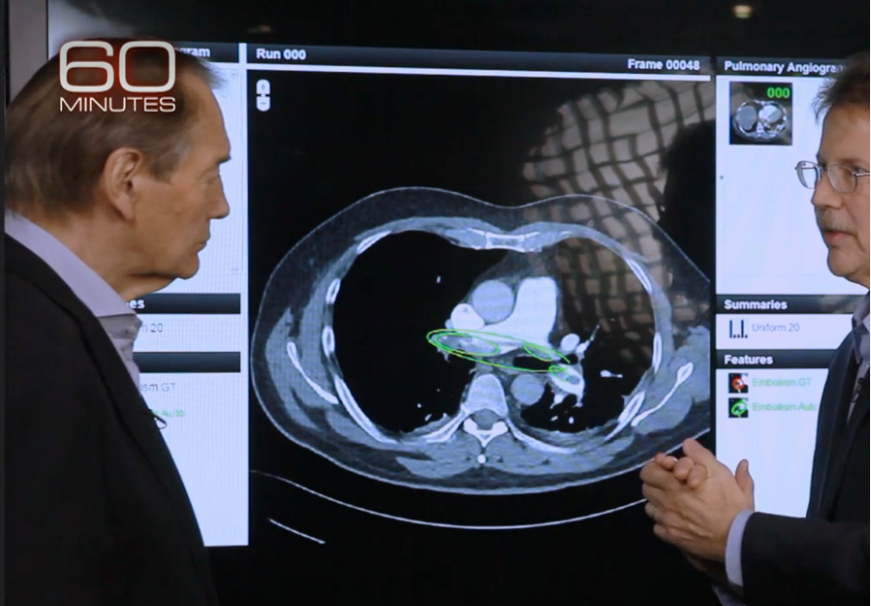
Oct. 13, 2016
By: Michael Feldman
Artificial intelligence received a nice boost in public exposure last Sunday evening when “60 Minutes,” CBS’s iconic news magazine, aired an in-depth report on the subject. The half-hour segment described how systems like IBM’s Watson supercomputer is changing the nature of medical diagnostics, and how other AI technologies are working their way into our everyday lives.
 The segment starts with host Charlie Rose observing that tech giants, like Facebook, Google, Microsoft and IBM are spending billions of dollars on AI development to deliver a new category of products and services. He noted that in the space of few years, the technology has become established in common consumer products like smartphones, cars and household appliances. “More progress has been made in the last 5 years, than the previous 50,” said Rose.
The segment starts with host Charlie Rose observing that tech giants, like Facebook, Google, Microsoft and IBM are spending billions of dollars on AI development to deliver a new category of products and services. He noted that in the space of few years, the technology has become established in common consumer products like smartphones, cars and household appliances. “More progress has been made in the last 5 years, than the previous 50,” said Rose.
As he goes through the report, Rose seems to get more and more enamored of how the technology is advancing. In one of his more breathless descriptions of AI’s potential, he proclaims: “It can learn through experience, much the way humans do, and it won’t be long before machines, like their human creators, start thinking for themselves, creatively, independently, with judgement – sometimes better judgment than humans have.”
To support that claim, he looked at what IBM Watson is accomplishing in the area of cancer diagnostics. One of the use cases the segment delved into in some detail was a collaboration between Watson and the University of North Carolina at Chapel Hill. An oncology research unit there attempts to come up with alternative therapies for patients where standard treatments have failed.
One of the problems with such cutting-edge work is that there are 8,000 new research papers published on the subject every day, making it impossible for mere mortals to collate all the latest advancements in the field. As a result, the research team at Chapel Hill was making recommendations based on information that was sometimes one or two years old. But ingesting and analyzing that constant stream of data is a trivial task for Watson – it can read 25 million papers a week if it needs to. That enabled the oncologists to tap into the most up-to-date knowledge.
Using past cases as a control, Watson was able to match the diagnoses made by doctors 99 percent of the time. But as a result of the machine’s more complete knowledge base, in 30 percent of the patients, Watson was able to uncover new treatments that the doctors had not considered before.
 In one case, using a combination of genomic analysis of the cancer cells and image scans of the tumors, Watson was able to uncover a genetic mutation in a woman’s tumor that her doctors missed, and suggested a novel treatment option. Unfortunately, in this case, the patient died due to an infection before the new treatment could be completed.
In one case, using a combination of genomic analysis of the cancer cells and image scans of the tumors, Watson was able to uncover a genetic mutation in a woman’s tumor that her doctors missed, and suggested a novel treatment option. Unfortunately, in this case, the patient died due to an infection before the new treatment could be completed.
The latter half of the “60 Minutes” segment demonstrated other AI technologies that are still in the research stage, such as driverless cars and boats, robots that look and act human, and augmented emotional intelligence. In the latter case, researchers believe a properly trained AI machine might be able to recognize suicidal depression in a person by interpreting facial expressions that are too subtle or short-lived for a psychiatrist to notice.
The segment explores a number of other interesting examples of AI and manages to provides a good overview on the state of the technology, without being too hyperbolic. Check out the whole video on CBS's website here.
